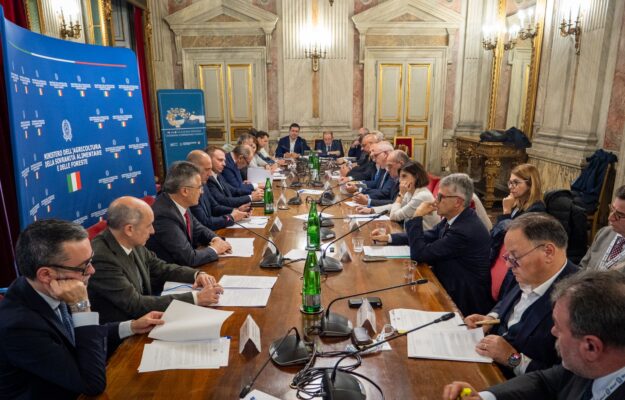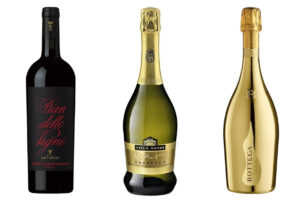The industry, , which has been asking for it for some time, likes the draft decree (anticipated by WineNews), that, once it will have been approved in the State-Regions Conference (hopefully, before the end of 2024), it will allow Italian wine producers to produce no-alcohol wines. They can be called in this way, and not “dealcoholized”, if the Eu accedes to the request for this little lexical exception, which will be requested in Brussels. A measure that, as a note of the Ministry of Agriculture explains, “arises following the regulation (Eu) 2021/2117, which introduces, throughout an amendment to Annex VIII of Regulation (Eu) No. 1308/2013, the possibility to carry out the wine-making practice of dealcoholization to reduce, partially or totally, the alcoholic content in wines. By a precious work of mediation between the various motions of associative world, the Ministry has worked to formulate a decree aiming to supply a clear regulatory framework complying with European regulations”.
“From the meeting – continues the Ministry – the desire to allow no-alcohol wine production emerged, adopting severe rules safeguarding wine industry, which respect the environment and aim to ensure the quality, and the authenticity of the product. That choice aims to meet the requirements maintaining, at the same time, the excellence and the tradition of Italian wine industry”. Amongst the main elements of the measure, still recalls Via XX Settembre, the ban to the dealcoholization for Dop and Igp wines in order to preserve the authenticity; the fact that the productive process should occur in dedicated structures, physically separated by those used for wine production, with digitalized registers and authoritative licenses; the labeling of the product throughout the letterings “no-alcohol” or “partially no-alcohol” will be mandatory. The comments of the main organizations of Italian wine industry are therefore positive, such as those by Federvini and Unione Italiana Vini - Uiv regarding this.
“Federvini welcomes with satisfaction the result of today meeting between the associations representing Italian wine industry, and Minister of Agriculture Francesco Lollobrigida, during which the ministerial order for the production of no-alcohol or low-alcohol wines in Italy was presented. The new measure – awaited by Italian wine producers interested in the development of this new type of products – will allow to overcome the current regulatory framework, which made the production of a wine, also partially dealcoholized, impossible, forcing the interested wine producers to go abroad to invest on this new and increased consumption segment consequently”, Federvini explains.
The decree, the result of a coinciding productive reflection between the different components of the insdustry and the Ministry – declared Piero Mastroberardino, vicepresident of Federvini – on the one hand, it aims to reestablish conditions of competitive equality with other wine countries; on the other hand, it aims to integrate, and not to replace, the types of products representing the outputs of the national supply chain, which has to continue the consolidation work of its guiding role in the value growth, and at the same time, to support the productive potential, and the relationship with markets”.
Federvini highlightes again the importance of clear and effectiveness-oriented rules avoiding operative restrictions which could impede the efficiency, and the competitiveness of the businesses. “It will be fundamental – added Piero Mastroberardino – that these new wines preserve a strong bond with the agricultural raw material, guiding the consumers to a continuous discovery of the wealth of our wine production”.
“The strategy of ministerial Decree “No-alcohol” presented today to the supply chain by the Minister of Agriculture Francesco Lollobrigida, represents a step forward in the regulation of the production of Nolo wines (no e low alcohol) in Italy”, comments Unione Italiana Vini - Uiv. Which, “except for some elements to be surely perfected, it thinks that the draft presented today at the Ministry defines a clear and detailed regulatory framework, capable of safeguarding the quality of the product, and the information to the consumer. Uiv is convinced that the introduction of these new product categories can, on the one hand, represents an alignment with European competitors, 3 years after the publication of the Community regulation, for the industry; on the other hand, can offer new opportunities to Italian wine industry, opening to new markets and consumer targets complementary to the demand of conventional wines”.
Amongst the outstanding elements of a Dm which contemplates the lines tracked by Eu regulation largely, underlines Uiv, the definition and classification of no-alcohol wines (alcohol content not over 0.5%), and partially dealcoholized wines (alcohol content over 0.5%, but lower than the minimum of the original category, 8,5%/9%). These are definitions which will have to be reported in the new labels following wine category. The dealcoholization, which will not be allowed for Dop and Igp products, should occur exclusively throughout the processes established together, according to the modalities of partial vacuum evaporation, membrane techniques, and distillation. It will be banned to increase the sugar content of the must, and add water or exogenous aromas to the products, whilst the recovery and reuse of water and of the endogenous aromas from the hydroalcoholic solution deriving from the process, providing that it occurs in a closed and automatic circuit, will be allowed.
According to Uiv, which evaluates positively the proposed normative framework, the improvable aspects are linked, particularly, to the possibility to allow that dealcoholization operations can occur in the same establishment where vinification/bottling operations occur, but in separated areas, and not intercommunicating, as indicated by Icqrf (and not in separated “establishments”). To that, the treatment as refusal – instead of by-product – for hydroalcoholic substances obtained with the membrane counter technique in relation to the antieconomical aspect in the implementation for other uses, is added. Now, everyone's wish is a rapid path, which can bring the approval of the measure before Christmas.
Copyright © 2000/2026
Contatti: info@winenews.it
Seguici anche su Twitter: @WineNewsIt
Seguici anche su Facebook: @winenewsit
Questo articolo è tratto dall'archivio di WineNews - Tutti i diritti riservati - Copyright © 2000/2026







































































































































































































